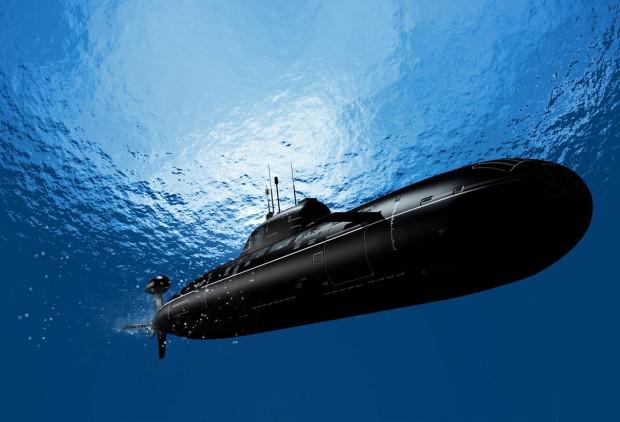946
The paradox of the submarine explains why submarines do not sink
How does the principle of relativity in marine glubinah
Jim Supple first thought about a new application of the theory of relativity, when he was a graduate student, but engaged in it a few years later, when he was a professor. Let's assume that the submarine has the same density as water around it, so it has neutral buoyancy: floats and floats, and forced her to move motors.

When something is moving at high speed (relative to the observer), the effects of relativity force object visually become shorter. From the point of view of a man sitting on the bottom of the sea, the submarine tighter around her water, so it sinks. On the other hand, from the point of view of the submariner, submarine remains fixed, and the water flows around it. Thus, water is denser than the boat, so the boat floats.
According to the paradox of the submarine, the submarine sinks to the bottom, not because it is denser than water, and due to the fact that the special theory of relativity makes the size of ocean change. The seabed seems curved upward, so that a submarine moving in a straight line, in the bottom utknёtsya.

Another physicist, George Matsas, agree with the conclusions, but uses a different principle. Matsas argues that, although due to the special theory of relativity water seems thicker submarine boats, general relativity is contrary to this: the submarine will sink due to the gravitational forces of super and really utknёtsya at the bottom. The moral is, if the universe were sold, any starships eventually sank to the bottom.
via factroom.ru

Jim Supple first thought about a new application of the theory of relativity, when he was a graduate student, but engaged in it a few years later, when he was a professor. Let's assume that the submarine has the same density as water around it, so it has neutral buoyancy: floats and floats, and forced her to move motors.

When something is moving at high speed (relative to the observer), the effects of relativity force object visually become shorter. From the point of view of a man sitting on the bottom of the sea, the submarine tighter around her water, so it sinks. On the other hand, from the point of view of the submariner, submarine remains fixed, and the water flows around it. Thus, water is denser than the boat, so the boat floats.
According to the paradox of the submarine, the submarine sinks to the bottom, not because it is denser than water, and due to the fact that the special theory of relativity makes the size of ocean change. The seabed seems curved upward, so that a submarine moving in a straight line, in the bottom utknёtsya.

Another physicist, George Matsas, agree with the conclusions, but uses a different principle. Matsas argues that, although due to the special theory of relativity water seems thicker submarine boats, general relativity is contrary to this: the submarine will sink due to the gravitational forces of super and really utknёtsya at the bottom. The moral is, if the universe were sold, any starships eventually sank to the bottom.
via factroom.ru
Previously, infants operated on without anesthesia, because they thought that they did not feel pain
Dogs can communicate with robots
























